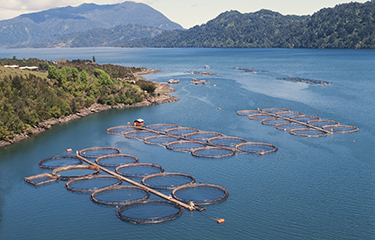



Article by: Hari Yellina
Under a state government that has encouraged and promoted the industry’s expansion, a legislative probe into Tasmania’s disputed salmon business identified difficulties with environmental protection and transparency. The salmon industry in Tasmania generates a billion dollars per year, but disease outbreaks, biosecurity concerns, and suspicions of a “compromised” permitting process have prompted environmental and community opposition in recent years. After an investigation into the industry, a Legislative Council committee released its final report, acknowledging that challenges arose as the industry grew, “as the state government has been an enthusiastic promoter and supporter of the industry,” and “efforts to effectively regulate the industry and keep pace with the protection… of public waterways has been a challenge.”
The group did, however, propose a plan to limit inshore finfish farming sites, with a focus on “ceasing activities in sensitive, sheltered, and biodiverse locations.” The government should examine all finfish farm environmental licence requirements and set clear limitations for dissolved nitrogen and other essential nutrients, as well as the number of fish that can be kept in a given area, according to the report. During the rapid rise of salmon farming in Macquarie Harbour, biomass restrictions were questioned, and high levels of dissolved nitrogen and nutrients from fish farms have been blamed for green algae in Tasmanian waterways. Meg Webb, the committee’s head, said the report included useful suggestions for the government. “Because the last thing we want is for this sector to become a more contentious issue.”
The committee discovered that the salmon industry in Tasmania could be yielding higher financial returns, and recommended an independent review of fees and levies for operators, including setting lease fees, local government rates, and levies required to cover the cost of regulatory monitoring and compliance. It also proposed that all marine farming lease allocations be subject to a transparent, competitive tender procedure that takes into account environmental, social, and economic factors.
The committee discovered that penalties for violating environmental rules in Tasmania were lower than in other regions of the country and that they should be reconsidered “to reflect the substantial environmental repercussions that can emerge from violating regulations” and function as a deterrence. It also suggested that the fines for fish farm marine trash be reviewed to “appropriately reflect the possible environmental and safety hazards,” as well as legislative changes to allow third parties to sue over environmental harm caused by licence violations.